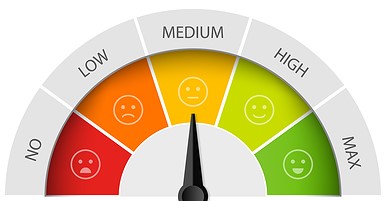11 min to read
As a digital marketing agency, we know that one of the key aspects of building a successful online presence is website rendering speed and that is intimately connected to web hosting. Web hosting is the service that allows individuals and organizations to make their websites accessible via the Web. There are several different types of web hosting available, each with its own unique advantages and disadvantages.
Performance and User Experience: A website's hosting environment can significantly impact its performance, speed, and overall user experience. Agencies can help clients choose the right hosting solution to ensure their websites load quickly and run smoothly, which is essential for retaining visitors and improving search engine rankings.
Scalability: As a client's business grows, so will their hosting needs. Agencies can help clients find a hosting solution that can easily scale with their growth, ensuring their website performs optimally without downtime.
Security: Agencies can help clients identify hosting providers with robust security measures, protecting their website from cyber-attacks and safeguarding sensitive customer data.
Technical Support: Agencies can assist clients in finding hosting providers with reliable technical support, ensuring that any issues that arise are quickly resolved.
Web hosting is a critical aspect of building a successful online presence. Agencies need to help clients choose the right hosting solution for their needs, ensuring optimal performance, scalability, security, and support. By doing so, clients can focus on their core business and confidently grow their online presence.

Agencies must help clients choose the right hosting solution and pick the one that best suits their needs. Here are some of the main types of web hosting and why agencies and clients need to make informed decisions:
1. Shared Hosting: In shared hosting, multiple websites share a single server and its resources. This is the most cost-effective option for small businesses and personal websites with low traffic. However, it may not be suitable for websites with high traffic or resource-intensive applications, as performance may suffer due to shared resources.
2. Virtual Private Server (VPS) Hosting: A virtual machine with dedicated resources, such as RAM and CPU, simulating a physical server. This option offers more control and customization than shared hosting, making it suitable for growing businesses that require more resources. VPS hosting provides better performance and stability than shared hosting but can be more expensive.
3. Dedicated Server Hosting: Dedicated hosting means that a client leases an entire server for their website, providing full control over the server's resources. This option is best for large businesses and high-traffic websites that require maximum performance and security. However, dedicated server hosting can be costly and require more technical knowledge.
4. Cloud Hosting: Cloud hosting is a scalable and flexible solution that allows websites to be hosted across multiple servers connected in a virtual network. This provides better uptime, performance, and resource allocation than traditional hosting options. It is suitable for businesses that experience fluctuating traffic and require the ability to scale resources up or down quickly.
5. Managed Hosting: In managed hosting, the hosting provider manages server maintenance, updates, and security, allowing the client to focus on their core business. This option can be beneficial for clients who lack the technical expertise to manage their servers or who prefer to delegate these tasks to a professional team.

Understand Your Needs
The first step in choosing a web hosting service is understanding your website's needs. Consider the size of your website, the amount of traffic you expect to receive, and the type of content you'll be hosting. Some web hosting services specialize in certain types of websites, such as e-commerce or blogs, so choosing a service tailored to your needs is important. When choosing a web hosting plan, make sure to select a plan that has enough storage and bandwidth to accommodate your website's needs. If you're unsure what hosting service is best for you, don't hesitate to contact customer support or consult a web designer for advice. They can help you decide on the right hosting plan to suit your needs. Plus, they can also provide helpful tips and guidance on setting up your website.
Choose a Reliable Hosting Provider
When it comes to web hosting, reliability is key. Look for a hosting provider that offers high uptime, meaning that your website will be accessible to visitors as much as possible. A reliable hosting provider should also have strong security measures in place to protect your website from hacking and other threats. Look at customer reviews and testimonials to get an idea of how satisfied customers are with the hosting provider's service. Also, make sure they provide technical support so you can quickly resolve any issues that come up. This will ensure that your website is always up and running.
Consider the Type of Hosting
There are several types of web hosting available, including shared hosting, VPS hosting, dedicated hosting, and cloud hosting. Shared hosting is the most common type and is typically the most affordable. With shared hosting, your website will share server space with other websites, which can sometimes result in slower load times. VPS hosting offers more resources and greater control over your website, while dedicated hosting provides a dedicated server for your website. Cloud hosting is a newer option that offers greater scalability and flexibility. If you're not sure which type of hosting is best for your website, take some time to research the options before making a decision.
Check the Pricing and Features
Web hosting services vary in price and features, so it's important to compare different options to find the best fit for your website. Look for a hosting provider that offers a competitive price for the features you need, such as storage space, bandwidth, and email accounts. Some hosting providers may also offer additional features, such as website builders or e-commerce tools, that can be useful for beginners. For example, some hosting providers offer a drag-and-drop website builder that makes it easy to create a professional-looking website without any coding experience.
Or, if you plan to run an online store, look for a hosting provider that offers e-commerce tools like a shopping cart and payment gateway. It's important to compare all the features and pricing options so you can make an informed decision. If you're not sure which features are important for your website, contact customer service or consult an expert to get advice.
Consider Customer Support
If you're new to web hosting, you may encounter technical issues or have questions about how to manage your website. Look for a hosting provider that offers reliable customer support, such as 24/7 live chat or phone support. Some hosting providers may also offer a knowledge base or tutorials to help you get started. It's important to have access to customer support in case you need help setting up your website or troubleshooting technical issues.
Also, make sure the hosting provider offers a money-back guarantee so you can get your money back if you're not satisfied with their service. They should also have an uptime guarantee to protect your website from unexpected downtime. Finally, make sure to read the terms of service so you know what you're getting into before signing up with any hosting provider. This will help ensure that you understand all the rules and regulations related to using their services.
Back Up Your Website
It's important to regularly back up your website to ensure that your data is safe in the event of a server failure or other issues. Some web hosting services may offer automatic backups, while others may require you to back up your website manually. Make sure you understand how to back up your website and how often you need to do so. Ask your hosting provider for more information if you're not sure how to back up your website or which backup solution is right for you. This will help make sure that all of your data is safe and secure in case any unexpected issues arise. Plus, it will give you peace of mind knowing that your website is safe and secure. It's also a good idea to have multiple backups of your website stored in different locations so you can easily restore your website if something happens.

Choosing the right web hosting service is important in building a successful website. By understanding your needs, choosing a reliable hosting provider, considering the type of hosting, checking the pricing and features, and considering customer support, you can find a hosting service that meets your needs and helps you achieve your website goals. Remember to back up your website regularly to protect your data and ensure that your website stays up and running. You can create a professional, successful website for your business or personal use with the right hosting service. Hosting can be complicated, but it doesn't have to be. With a bit of research and the right provider, you can find a reliable hosting service that helps you create the website of your dreams.
Why are digital agencies so worried about website speed?
Web hosting plays a significant role in Search Engine Optimization (SEO) and the overall success of a website. A reliable and well-optimized hosting environment can greatly impact a website's SEO performance. Here are some key reasons why web hosting is important for SEO:
Site Speed: Page loading speed is an essential factor in Google's ranking algorithm. Websites hosted on fast and reliable servers will generally load faster, providing a better user experience and improving their chances of ranking higher in search results. A slow-loading website, on the other hand, can frustrate users and negatively impact search engine rankings.
Uptime and Downtime: Website uptime refers to the percentage of time a website is accessible and functional. Search engines prefer websites with high uptime rates, as this indicates reliability and consistency. Frequent downtime due to poor hosting can lead to lower rankings, as search engines may perceive the website as unreliable.
Server Location: The physical location of a website's server can influence its loading speed for users in different geographic regions. Hosting your website on a server located close to your target audience can result in faster loading times and improved user experience, which can positively impact SEO performance.
Security: A secure web hosting environment is crucial for protecting a website from cyber-attacks, such as hacking and Distributed Denial of Service (DDoS) attacks. Search engines prioritize websites with strong security measures in place, as this ensures a safe browsing experience for users. A website compromised by a security breach can lead to lost rankings, as search engines may penalize it or remove it from search results entirely.
SSL Certificates: Secure Socket Layer (SSL) certificates are essential for ensuring the security of data transmitted between a website and its users. Search engines, including Google, use SSL as a ranking factor, as it demonstrates a website's commitment to protecting user data. Most web hosting providers offer SSL certificates as part of their hosting packages or as an add-on service.
Scalability: As a website grows in size and traffic, its hosting requirements may change. A hosting environment that allows for easy scaling can help maintain optimal website performance, even as traffic and resource demands increase. This, in turn, can positively impact a website's SEO performance.
Has Codedesign run any studies on website speed vs SEO?

Several studies and data support the idea that website speed impacts SEO. Faster-loading websites typically rank higher in search engine results pages (SERPs) and provide a better user experience. Here are some key data points and findings that support the relationship between website speed and SEO:
- Google's Page Experience Update: In June 2021, Google introduced the Page Experience Update, which made Core Web Vitals - including Largest Contentful Paint (LCP), First Input Delay (FID), and Cumulative Layout Shift (CLS) - essential ranking factors. LCP is a metric directly related to page loading speed, highlighting the importance of fast-loading pages in Google's ranking algorithm.
- Google's "Speed Update": In July 2018, Google announced the "Speed Update," which made page speed a ranking factor for mobile searches. This update emphasized the importance of fast-loading pages on mobile devices for improved search rankings.
- Impact on Bounce Rates: Several studies have found a correlation between page loading speed and bounce rates. For instance, a study by Google found that as page load time increases from 1 second to 3 seconds, the probability of a user bouncing (leaving the site) increases by 32%. This indicates that slower-loading pages may result in higher bounce rates, which can negatively impact SEO performance.
- Impact on Conversion Rates: Website speed also influences conversion rates. A study by Cloudflare found that a 100-millisecond delay in load time can result in a 7% reduction in conversion rates. Search engines like Google take user behavior data, such as conversion rates, into account when ranking websites, further emphasizing the importance of site speed.
- User Expectations: According to a study by Akamai, 47% of users expect a web page to load in 2 seconds or less, and 40% of users will abandon a website if it takes more than 3 seconds to load. Meeting user expectations for fast-loading websites can lead to better user engagement, which can positively impact SEO performance.
- Impact on Indexing: Google uses a "crawl budget" to determine how many pages it will crawl and index from a website within a given timeframe. Slow-loading websites may consume more of Google's crawl budget, resulting in fewer indexed pages and potentially lower search rankings.
How is website speed and web hosting impacts Media Campaigns?
Several studies and data support the idea that website speed impacts SEO. Faster-loading websites typically rank higher in search engine results pages (SERPs) and provide a better user experience. Here are some key data points and findings that support the relationship between website speed and SEO:

Web hosting is important for paid media campaigns because it can directly impact the performance and effectiveness of your ads. A reliable and fast web hosting service can enhance user experience, reduce bounce rates, and increase conversion rates, ultimately leading to a higher return on investment (ROI) for your paid media campaigns. Here are some examples and data to support the significance of web hosting in paid media campaigns:
Landing Page Speed: The success of a paid media campaign largely depends on the landing page's performance, which is directly influenced by web hosting. Faster-loading landing pages can provide a better user experience, increasing the chances of users engaging with your content or completing the desired action (e.g., making a purchase or signing up for a newsletter). According to Google, a 1-second delay in page load time can result in a 20% drop in conversion rates, emphasizing the importance of fast web hosting for your landing pages.
Quality Score and Ad Rank: In Google Ads, the Quality Score is a metric used to determine the relevancy and quality of your ads and landing pages. A higher Quality Score can lead to lower cost-per-click (CPC) and better ad placement. One of the factors that influence Quality Score is landing page experience, which includes page loading speed. Fast web hosting can contribute to a better landing page experience, potentially improving your Quality Score and Ad Rank.
Bounce Rates: Slow-loading landing pages can lead to higher bounce rates, as users are more likely to leave the page if it takes too long to load. High bounce rates can negatively impact your paid media campaign's performance, as they indicate that users are not engaging with your content or taking the desired action. A study by Google found that as page load time increases from 1 second to 3 seconds, the probability of a user bouncing increases by 32%, illustrating the importance of fast web hosting in reducing bounce rates.
Mobile Experience: With the increasing use of mobile devices for internet browsing, ensuring a fast and seamless mobile experience is critical for paid media campaigns. A responsive, mobile-optimized website with fast loading times can lead to better user engagement and higher conversion rates. According to Google's data, 53% of mobile users will abandon a site if it takes longer than 3 seconds to load, highlighting the importance of web hosting for mobile experience.
In conclusion, web hosting plays a crucial role in the success of paid media campaigns. Fast, reliable web hosting can improve landing page speed, enhance user experience, reduce bounce rates, and increase conversion rates, all of which contribute to better campaign performance and higher ROI. Investing in high-quality web hosting is a key factor in optimizing your paid media campaigns for success.
Codedesign is a Data-Driven Marketing Agency.
As experts in digital marketing, we know that we must be up to date with all the information and tactics to provide the best service to our clients. Technology has come to make our lives easier. In the same way, we, as an agency, seek to make your job easier by taking care of all digital marketing duties so your business can reach its most significant potential.
Data and analytics are our compasses to make wiser decisions within your niche, which we combine with our knowledge and expertise in digital marketing management to boost your results. If you want to know more about data or more advice on the direction of your business online, contact us at this time.
Codedesign is a digital marketing agency specializing in e-commerce and B2B online marketing. Our digital team utilizes the latest digital marketing tools and strategies to help clients reach their business goals. We offer comprehensive services such as website design, search engine optimization (SEO), content marketing, performance marketing, social media marketing, CRM and marketing automation, email marketing, and more. Our experts create and implement customized digital marketing campaigns to increase website traffic, generate leads, and drive sales. Our expertise in e-commerce and B2B marketing allows us to understand the nuances of the digital marketplace and create effective marketing solutions tailored to their client's needs.

About Bruno GavinoBruno Gavino is the CEO and partner of Codedesign, a digital marketing agency with a strong international presence. Based in Lisbon, Portugal, with offices in Boston, Singapore, and Manchester (UK) Codedesign has been recognized as one of the top interactive agencies and eCommerce agencies. Awarded Top B2B Company in Europe and Top B2C company in retail, Codedesign aims to foster personal relationships with clients and create a positive work environment for its team. He emphasizes the need for digital agencies to focus on data optimization and performance to meet the increasingly results-driven demands of clients. His experience in digital marketing, combined with a unique background that includes engineering and data, contributes to his effective and multifaceted leadership style. |

About CodedesignCodedesign is a digital marketing agency with a strong multicultural and international presence, offering expert services in digital marketing. Our digital agency in Lisbon, Boston, and Manchester enables us to provide market-ready strategies that suit a wide range of clients across the globe (both B2B and B2C). We specialize in creating impactful online experiences, focusing on making your digital presence strong and efficient. Our approach is straightforward and effective, ensuring that every client receives a personalized service that truly meets their needs. Our digital agency is committed to using the latest data and technology to help your business stand out. Whether you're looking to increase your online visibility, connect better with your audience, get more leads, or grow your online sales. For more information, read our Digital Strategy Blog or to start your journey with us, please feel free to contact us. |
CodeDesign is leading:
- Digital Agency
- Digital Marketing Agency
- Digital Ecommerce Agency
- Amazon Marketing Agency

Add comment ×